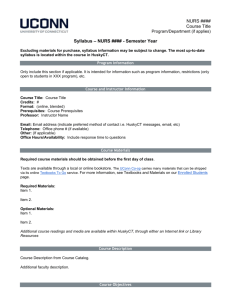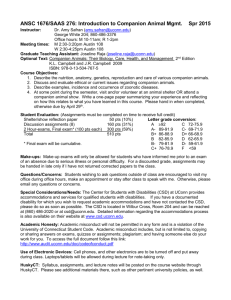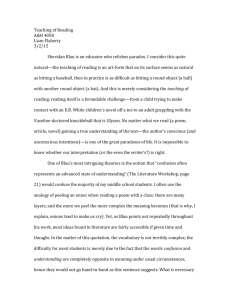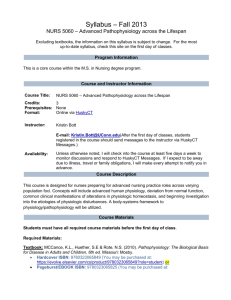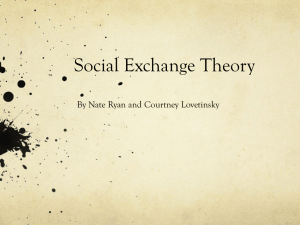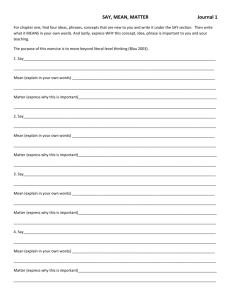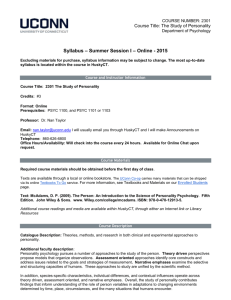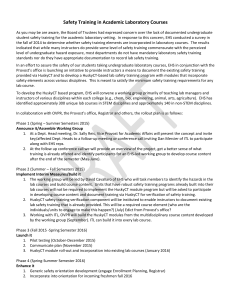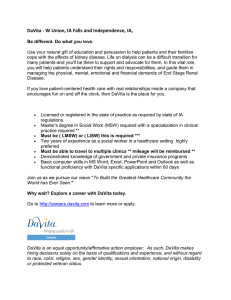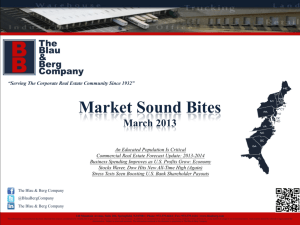Human Rights in the US Syllabus
advertisement
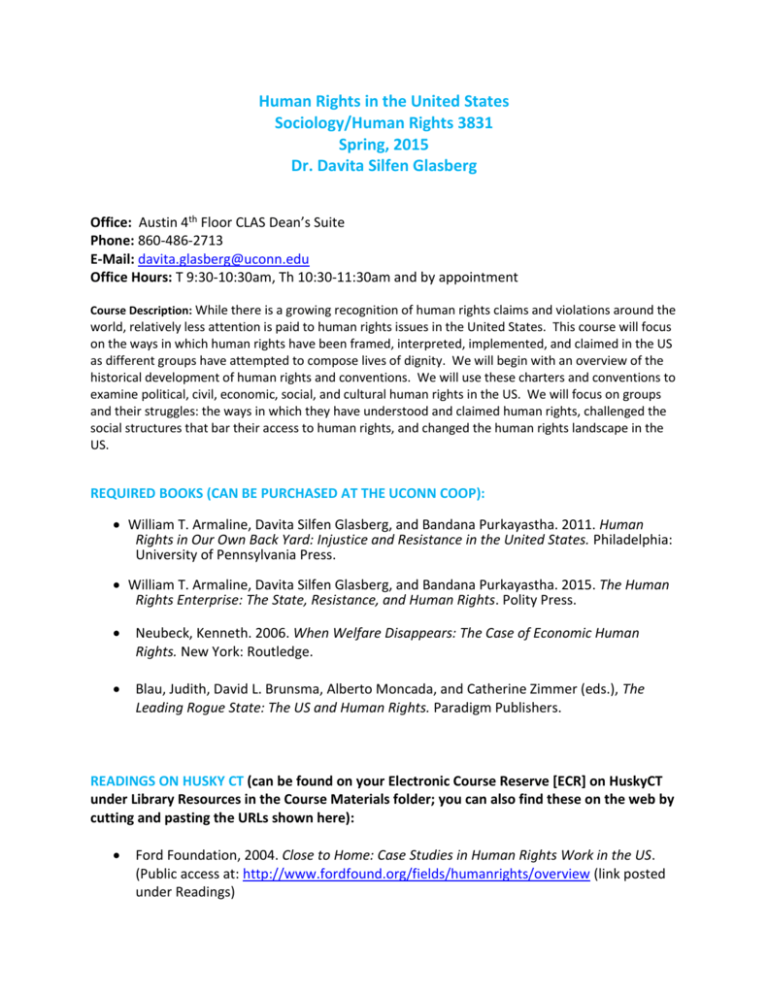
Human Rights in the United States Sociology/Human Rights 3831 Spring, 2015 Dr. Davita Silfen Glasberg Office: Austin 4th Floor CLAS Dean’s Suite Phone: 860-486-2713 E-Mail: davita.glasberg@uconn.edu Office Hours: T 9:30-10:30am, Th 10:30-11:30am and by appointment Course Description: While there is a growing recognition of human rights claims and violations around the world, relatively less attention is paid to human rights issues in the United States. This course will focus on the ways in which human rights have been framed, interpreted, implemented, and claimed in the US as different groups have attempted to compose lives of dignity. We will begin with an overview of the historical development of human rights and conventions. We will use these charters and conventions to examine political, civil, economic, social, and cultural human rights in the US. We will focus on groups and their struggles: the ways in which they have understood and claimed human rights, challenged the social structures that bar their access to human rights, and changed the human rights landscape in the US. REQUIRED BOOKS (CAN BE PURCHASED AT THE UCONN COOP): William T. Armaline, Davita Silfen Glasberg, and Bandana Purkayastha. 2011. Human Rights in Our Own Back Yard: Injustice and Resistance in the United States. Philadelphia: University of Pennsylvania Press. William T. Armaline, Davita Silfen Glasberg, and Bandana Purkayastha. 2015. The Human Rights Enterprise: The State, Resistance, and Human Rights. Polity Press. Neubeck, Kenneth. 2006. When Welfare Disappears: The Case of Economic Human Rights. New York: Routledge. Blau, Judith, David L. Brunsma, Alberto Moncada, and Catherine Zimmer (eds.), The Leading Rogue State: The US and Human Rights. Paradigm Publishers. READINGS ON HUSKY CT (can be found on your Electronic Course Reserve [ECR] on HuskyCT under Library Resources in the Course Materials folder; you can also find these on the web by cutting and pasting the URLs shown here): Ford Foundation, 2004. Close to Home: Case Studies in Human Rights Work in the US. (Public access at: http://www.fordfound.org/fields/humanrights/overview (link posted under Readings) Center for Economic and Social Rights: Visualizing Rights (Public access at: http://www.cesr.org/downloads/USA%20Web%20final.pdf Core Human Rights Documents: Universal Declaration of Human Rights (UDHR), covenants on Civil, Political, Economic, and Social Rights (ICCPR and ICESR). Covenant on Women’s Rights (CEDAW), on Genocide. See www.unhchr/ch/udhr OR http://ohchr.org/english/law/ www.unhchr/ch/html/menu3/b/a_ccpr.htm www.unhchr.ch/html/menu3/b/a_cescr.htm www.un.org/womenwatch/daw/cedaw/ http://www.ohchr.org/english/law/cat.htm Glenn, Evelyn Nakano. 2002. “Citizenship: Universalism and Exclusion,” in Unequal Freedom. Cambridge, MA: Harvard University Press. Pp. 18-59 (ECR). Human Rights Organizations: Human Rights Watch (www.hrw.org ) Amnesty International (www.amnesty.org ) Puri, Jyoti. 2004. “Checking (homo) sexualities at the nation’s door: Nationalisms and sexualities.” In Encountering Nationalism. Pp. 142-269. Malden, MA: Blackwell Publishers (ECR). Luban, David. 2005. “Eight fallacies about liberty and security.” In Human Rights in the War on Terror, edited by Richard Wilson. Cambridge: Cambridge University Press. Pp. 242-256 (ECR). Robinson, Mary. 2005. “Connecting human rights, human development, and human security.” In Human Rights in the War on Terror, edited by Richard Wilson. Cambridge: Cambridge University Press. Pp. 308-316 (ECR). Sen Gupta, Arjun. 2006. “Extreme poverty and human rights: A report on the US.” (ECR). Sen, Amartya. 1999. Development as Freedom. New York: Knopf. Pp. 18-24 (ECR). Beeman, Angie, Davita Silfen Glasberg, and Colleen Casey. 2010. “Whiteness as property: Predatory lending and the reproduction of racialized inequality.” Critical Sociology 37(3):1-23. (ECR). COURSE REQUIREMENTS Interactions in class. This is an active learning course. I will lecture on the introductory or background material; you will present the readings, ask questions, and present cases (as I assign them) each day. We will discuss a variety of controversial subjects; I expect you to be responsible for maintaining a respectful learning atmosphere in class where diverse views can be expressed. Use of electronics in class. You are only allowed to use computers and other electronic devices to take notes. Communicating with anyone outside class or engaging in any activity that is not relevant to the class is strictly forbidden. I will penalize you (lower your overall grade by one level) for engaging in non-class related activities such as texting, chatting, surfing, and using social networking sites. If you wish to use your laptop to take notes in class please fill out the contract posted on HuskyCT and I will issue a permission sticker for the cover of your laptop. You may only use your laptop if you have this sticker affixed to your laptop cover. If you use your laptop in-class for anything other than taking notes I will confiscate the permission sticker and you will have to take notes by hand. Excused delays and absences. I expect assignment submissions to be dropped in the appropriate folder in the assignment file on Husky CT. These folders will electronically close and disappear 24 hours after the start time of reflection paper events, or by 8am of the due date of the midterm and final. Group projects are due two weeks after the group presentation and should be emailed to me. I will accommodate all religious holidays, but I would like you tell me about these holidays at the beginning of the semester. If you have a medical emergency—i.e. an emergency that is documented by medical personnel on their letter head—or a death in the family, for which you can provide documentary evidence, then I will work with you to find another submission/completion date. If your group paper submissions are delayed or you do not submit an exam on the day assigned, I will take off the equivalent of half a letter grade for each day’s delay. Academic Integrity. I expect you to follow all standards of academic integrity. These include, but are not limited to, acknowledgement of research, ideas, and efforts of others. Consult your Student Handbook to find out more about these standards. GRADING 1 class project (debate, data, or case presentation): 15% 1 paper based on the class project: 15% 2 reflection papers: 10% Midterm: 20% Final exam: 40% Reflection Papers: Human Rights Events I expect you to attend two human rights events on campus during the semester that are directly related to human rights--but clear them with me FIRST. You are expected to write a summary of the event, and engage in a discussion of the human rights it raises. These should be submitted to me in the first class following the event. Readings Except for the first week, you should read the assigned material BEFORE class. Look through the list of additional material if you are interested in a particular subject. CASE PRESENTATIONS Look on HuskyCT for details on the cases and the presentations. You will be asked to present on one case during the semester. You need to identify at least three other people to work with on the case. For the class presentation: You should prepare (1) a clear statement of the human rights issue, (2) the dimensions of the problem, (3) activism relating to the problem (including controversies, relative successes and failures), (4) a list of bibliographic and additional sources, and (5) 3-4 provocative discussion questions for the class. You may present this as a presentation or as a debate. If you choose to do this as a debate, half the group must presenting one side of the debate and the other half present the opposite point of view. This is a group presentation and should NOT exceed 25 minutes including set-up time. Feel free to be very creative: you may use PowerPoint, multimedia, and other creative ways to present your material. You will be required to send me your presentation (eg., your PowerPoint slides) after you present to class so I can upload these on HuskyCT for the class. You will also be required to upload a more developed paper based on this presentation on HuskyCT for the class to see. For the HuskyCT group project paper posting: REVISING THE US CONSTITUTION After your group has presented your case in class, you will have two weeks to write a group paper that explores the following: 1. Identify which human rights in the Universal Declaration of Human Rights your group’s topic concerned (5 POINTS) 2. What does the US Constitution say about such rights? (10 POINTS) 3. What are the limitations or problems posed by the way the US Constitution addresses this issue? (10 points) 4. What do other countries’ Constitutions say about such rights? Make sure you compare and contrast at least 3 different countries, and that at least two of them are from different continents (35 POINTS) 5. How might you revise the US Constitution to address these rights? (20 POINTS) 6. What would the implications be of such a revision? (20 POINTS) I will post the links to the relevant resources for this exercise. Please be sure to consult them in your written report. The report should be about 8-12 pages. Once the paper is complete (within 2 weeks after your group presentation) you will need to send it to me via email so I can post it on HuskyCT for the class to share. A CAUTIONARY WORD ABOUT ACADEMIC INTEGRITY The University takes academic integrity quite seriously, and so do I. I expect all your work to be your own, including your exams, your response papers, and your contributions to group work. Any suspicions of academic misconduct will be subject to the University’s disciplinary process through the Office of the Dean of Students. Academic misconduct is defined by the Student Code of Conduct as “dishonest or unethical academic behavior that includes, but is not limited, to misrepresenting mastery in an academic area (e.g., cheating), failing to properly credit information, research or ideas to their rightful originators or representing such information, research or ideas as your own (e.g., plagiarism)” (http://community.uconn.edu/the-studentcode-appendix-a/ ). Any findings of academic misconduct can be sanctioned by a range of consequences, from a zero for the assignment in question up to and including expulsion from the University. Please make sure you avoid running afoul of the University’s standards for academic integrity and familiarize yourselves with the proper methods of citations, and do not be tempted to cheat in any way. Remember: a failing score on an assignment is still better than an F in the course or worse. STUDENTS WITH DISABILITIES Please contact me during office hours to discuss academic accommodations that may be needed during the semester due to a documented disability. The Center for Students with Disabilities (CSD) engages in an interactive process with each student and reviews requests for accommodations on an individualized, case-by-case basis. Depending on the nature and functional limitations of a student’s documented disability, he/she may be eligible for academic accommodations. CSD collaborates with students and their faculty to coordinate approved accommodations and services for qualified students with disabilities. If you have a documented disability for which you wish to request academic accommodations and have not contacted the CSD, please do so as soon as possible. The CSD is located in Wilbur Cross, Room 204 and can be reached at (860) 486-2020 or at csd@uconn.edu. Detailed information regarding the process to request accommodations is available on the CSD website at www.csd.uconn.edu. Policy Against Discrimination, Harassment and Inappropriate Romantic Relationships The University is committed to maintaining an environment free of discrimination or discriminatory harassment directed toward any person or group within its community – students, employees, or visitors. Academic and professional excellence can flourish only when each member of our community is assured an atmosphere of mutual respect. All members of the University community are responsible for the maintenance of an academic and work environment in which people are free to learn and work without fear of discrimination or discriminatory harassment. In addition, inappropriate Romantic relationships can undermine the University’s mission when those in positions of authority abuse or appear to abuse their authority. To that end, and in accordance with federal and state law, the University prohibits discrimination and discriminatory harassment, as well as inappropriate Romantic relationships, and such behavior will be met with appropriate disciplinary action, up to and including dismissal from the University. More information is available at http://policy.uconn.edu/?p=2884. Sexual Assault Reporting Policy To protect the campus community, all non-confidential University employees (including faculty) are required to report assaults they witness or are told about to the Office of Diversity & Equity under the Sexual Assault Response Policy. The University takes all reports with the utmost seriousness. Please be aware that while the information you provide will remain private, it will not be confidential and will be shared with University officials who can help. More information is available at http://sexualviolence.uconn.edu/. SYLLABUS Date Theme Assignment Jan. 20-22 Introducing Human Rights: Read: Close to Home, pp1-18 The Sociological Read: Armaline et al, pp1-6 Perspective Read: Blau et al, pp. 1-15; 208-218 Read: the core documents: Universal Declaration of Human Rights (UDHR), covenants on civil and Human Rights: A Historical political rights and economic and social rights Background (ICCPR and ICESR). Conventions on women (CEDAW), conventions against genocide. NOTE: Complete this reading by the end of the week. Beginning next week I expect you to have read over the assigned material BEFORE class. Video: The Making of the Universal Declaration of Human Rights. Jan. 27-29 Security and Human Rights Organize your groups. Create a list of questions to clarify what you need to do on your projects/presentations. Read: Armaline et al, pp125-126; Ch. 11 Read: Close to Home, pp. 38-43 Read: Blau et al, pp. 233-237 Video: Mira Nair Feb. 3-5 Security and Human Rights: Contemporary Issues. Read: Armaline et al, Ch. 13 Read: Luban Read: Robinson Read: “Visualizing Rights” Also: use your notes on the Human Rights groups reports. 1. Case: National Security, Feb. 5 Feb. 10-12 Human Rights and unequal citizenship. Race/Class/Gender in the making of civil and political rights. Read: Nakano Glenn Read: Close to Home, pp. 64-72 Read: Turner 2. Case: Rights of Immigrants, Feb. 12 Feb. 17-19 Feb. 24-26 Mar. 3-5 Human Rights and Unequal Citizenship: Racism Human Rights and unequal citizenship: Ratification of CEDAW Sexual Citizenship Read: Armaline et al, pp173-174; Ch. 3 & 16 Read: Beeman, Glasberg, and Casey Read: Blau et al, pp. 60-74 Video: Race: Power of an Illusion 3. Case: Racial Profiling, Feb. 19 Read: CEDAW. Read: Armaline et al, pp199-200; Ch. 18-20 Read: Close to Home, pp. 58-63; 72-77; 86-91 Read: Blau et al, pp. 75-85 Discussion: are women’s rights human rights? 4. Case: Equal Pay and Comparable Worth, Feb. 26 Complete discussion on cultural human rights. Read: Armaline et al, Ch. 14 Read: Puri Read: Blau et al, pp. 112-124 5. Case: Same Sex Marriage, Mar. 5 Midterm due at beginning of class, Mar. 5 Mar. 10-12 Cultural Human Rights Read: Armaline et al, pp103-104; Ch. 9 & 10 Read: Close to Home pp. 32-37 Read: Blau et al, pp. 98-111; 138-151 Video: Riz Khan: Native American Rights 6. Case: Cultural Rights and Native American groups, Mar. 12 Mar. 15-21 SPRING BREAK! Mar. 24-26 Economic and Social Human Rights: Labor Read: Armaline et al, pp7-8; Ch. 1 & 2 Read: Blau et al,+ PP. 37-46 Video: Triangle Shirt Factory Fire 7. Case: Living Wage vs. Minimum Wage, Mar. 26 Mar.31Apr.2 Economic and Social Human Rights Read: Amartya Sen on Poverty and Capabilities Read: Arjun Sengupta’s report Read: Armaline et al, 4 & 6 Read: Close to Home, pp26-31; 50-57 Read: Blau et al, pp. 152-162 9. Case: Hunger and Homelessness in the 21st Century, Apr. 2 Apr. 7-9 Social and Economic Rights Continued Read: Neubeck 10. Case: Welfare Reform, Apr. 9 Apr. 14-16 Social Human Rights: Health Video: The Uninsured: Forty Four Million Forgotten Americans. Read: Armaline et al, Ch. 8 Read: Close to Home, pp 92-97 Read: Blau et al, pp. 25-36 11. Case: Universal Health Care as a Human Right, Apr. 16 Apr. 21-23 Social Human Rights: Children’s Rights Read: Armaline et al, Ch. 7 & 17 Read: Blau et al, PP. 47-59 12. Case: Children at the Border, Apr. 23 Apr. 28-30 Human Rights Enterprise: Resistance and Human Rights From Below Read: Armaline et al (2011), pp229-230; Ch. 21-23 Read: Armaline et al, (2015), selections TBA 13. Case: Protesting Police Use of Force, Apr. 30 *****FINALS WEEK: MAY 4-9***** DO NOT MAKE TRAVEL PLANS BEFORE THE END OF FINALS WEEK. THE UNIVERSITY DOES NOT CONSIDER TRAVEL PLANS A VALID REASON TO MISS THE FINAL EXAM OR TO HAVE IT RESCHEDULED.
